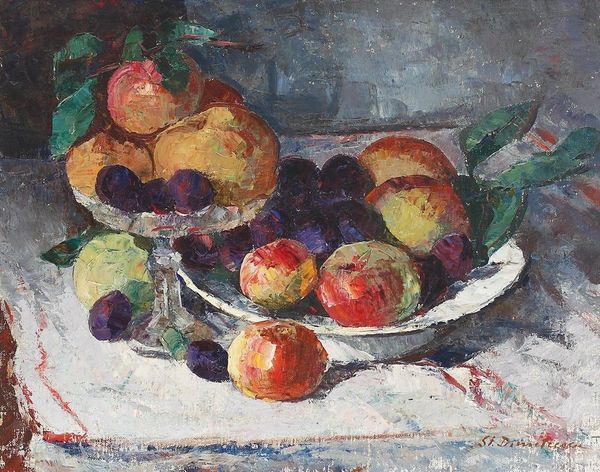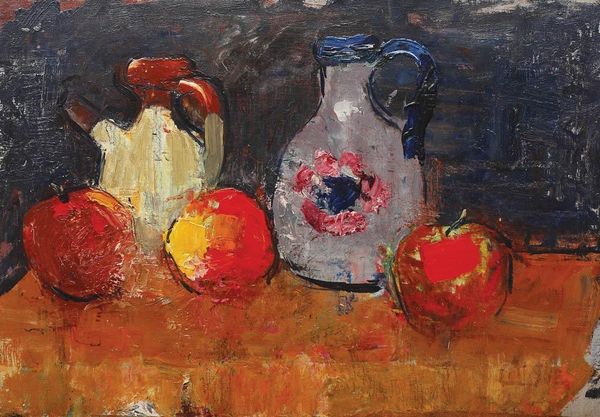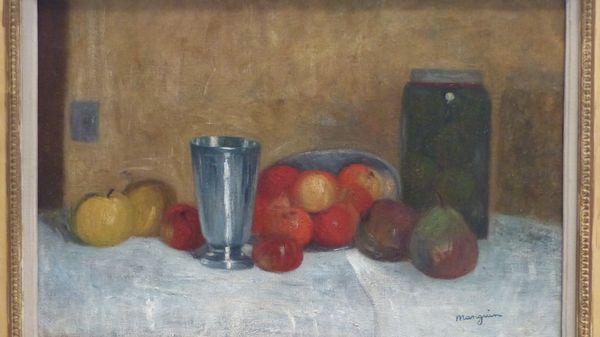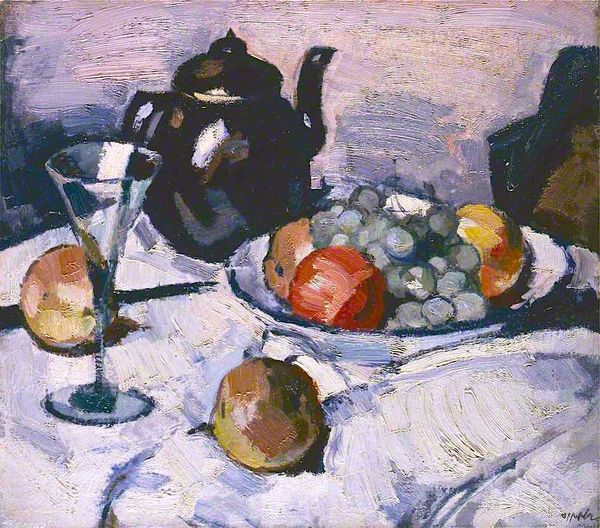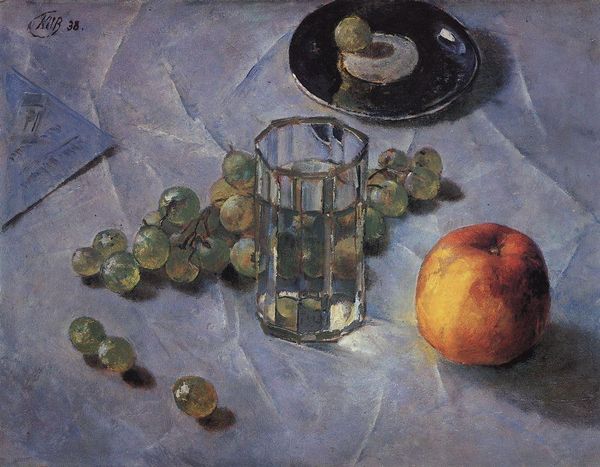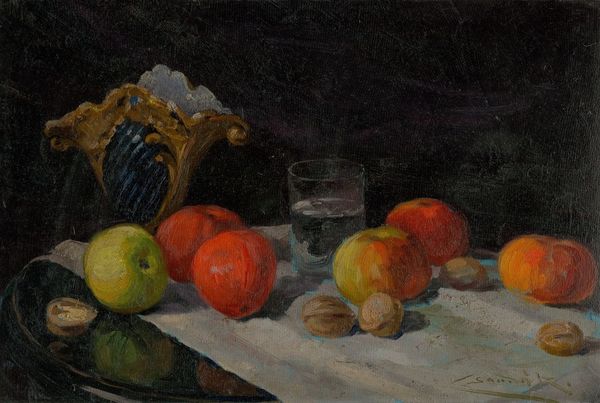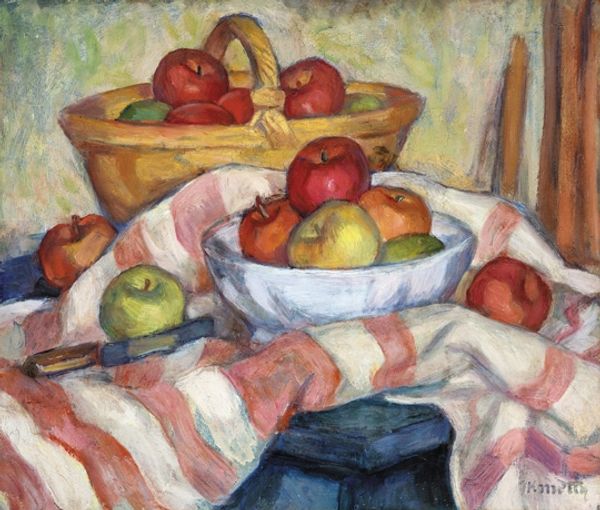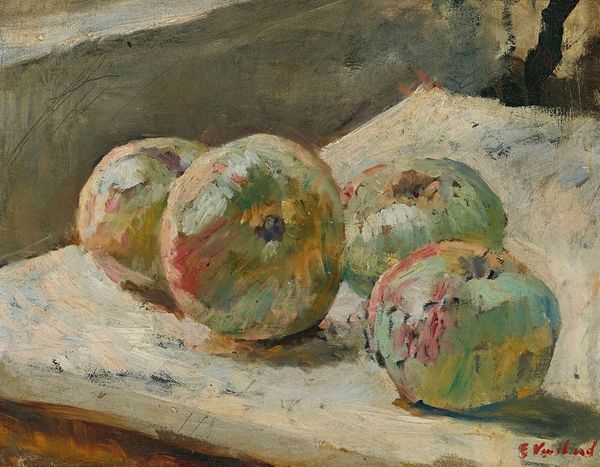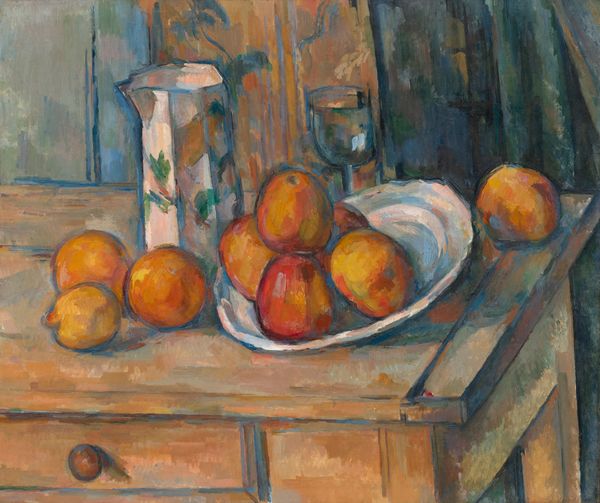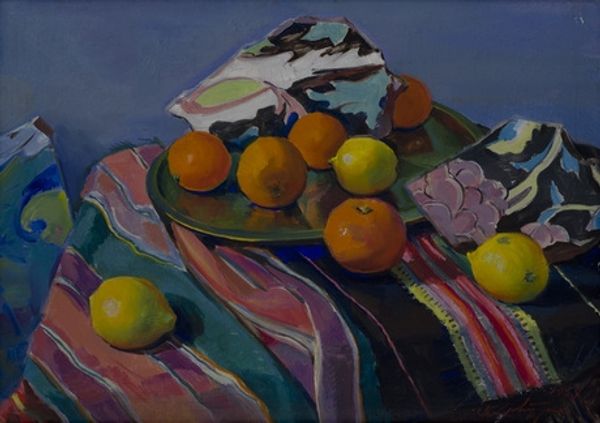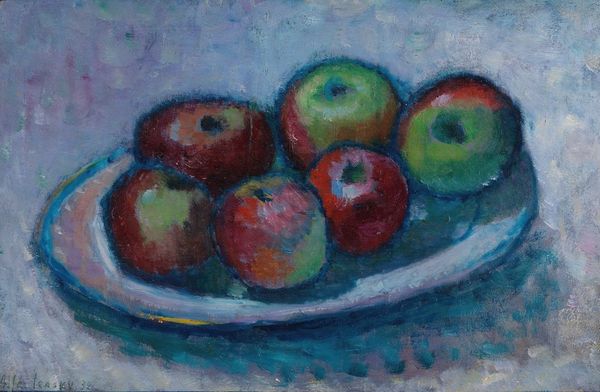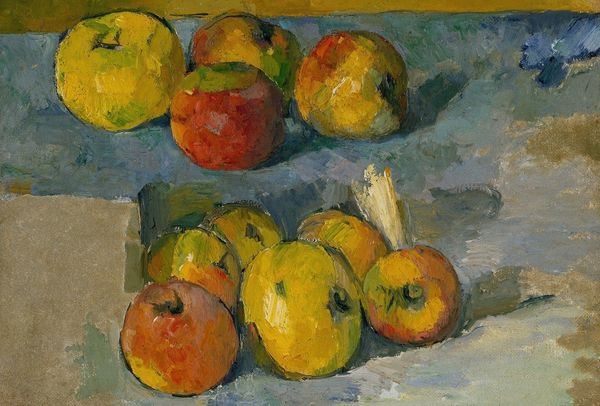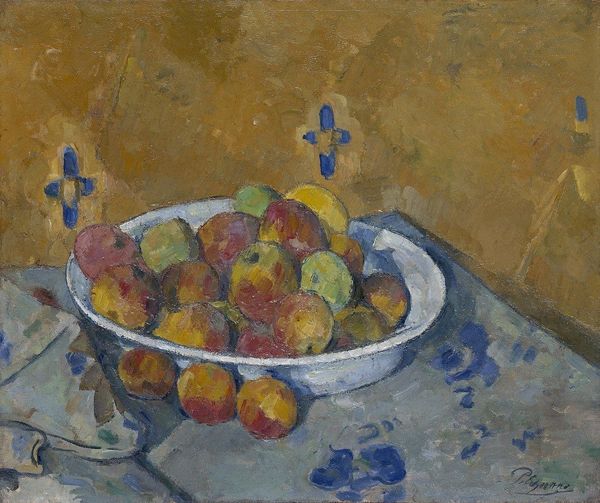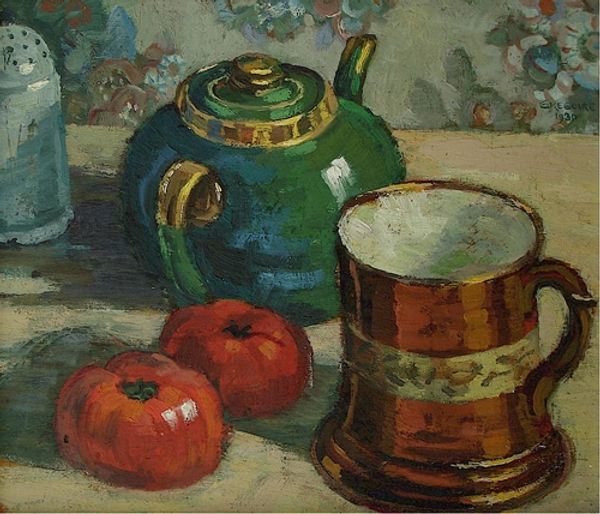
Copyright: Public domain
Curator: Oh, I do love how solid those apples look. Konstantin Gorbatov painted this still life in 1913, capturing these humble objects with an Impressionistic style, all soft brushstrokes in oil paint. Editor: My first thought is about light; isn't it odd? It feels cool, almost artificial, as though illuminating objects in a stage scene and stripping them of vitality. Curator: Well, I would say it gives them a certain…weight. He builds the composition with the darker tones, the blues and greens lurking behind the fruit, letting the apples push forward into the light. Editor: Pushes forward to where, exactly? There's something almost forlorn about the staging, these isolated objects on what looks like a carelessly strewn cloth, creating the space of art history when Russia was quickly mobilizing for war, so even innocuous fruit suggests a certain elegiac tone? Curator: (chuckles) See, I just see good autumn apples ripe for picking! Though, thinking of history, Gorbatov eventually had to flee Russia after the Revolution and settle in Italy… Perhaps even the choice of an archetypal still life, a classical subject, has some coded resistance. Editor: Interesting. I notice too how he almost merges the background and the vessels into this uniform greenish haze. They seem like supporting characters overshadowed by these very symbolic red fruits, which can represent knowledge, sin, or, dare I say, simply abundance! Curator: Exactly, the simple joy of an apple! There's a directness in his work that feels grounded, particularly given the shifting art world of the early 20th century. Though influenced by Impressionism, Gorbatov maintains his uniquely straightforward aesthetic. Editor: You're right. Maybe it’s not about sorrow as such but about the fleeting beauty of tangible, simple things, elevated and maybe memorialized, given the tumultuous world that these objects were being produced in. The subtle, expressive qualities and emotional power is more apparent when put into the historical context. Curator: Right, right. Beauty caught, preserved for another glance. Maybe that is his statement. Thanks! Editor: My pleasure, it is important to remember to see beyond the still object into the artist's life.
Comments
No comments
Be the first to comment and join the conversation on the ultimate creative platform.
